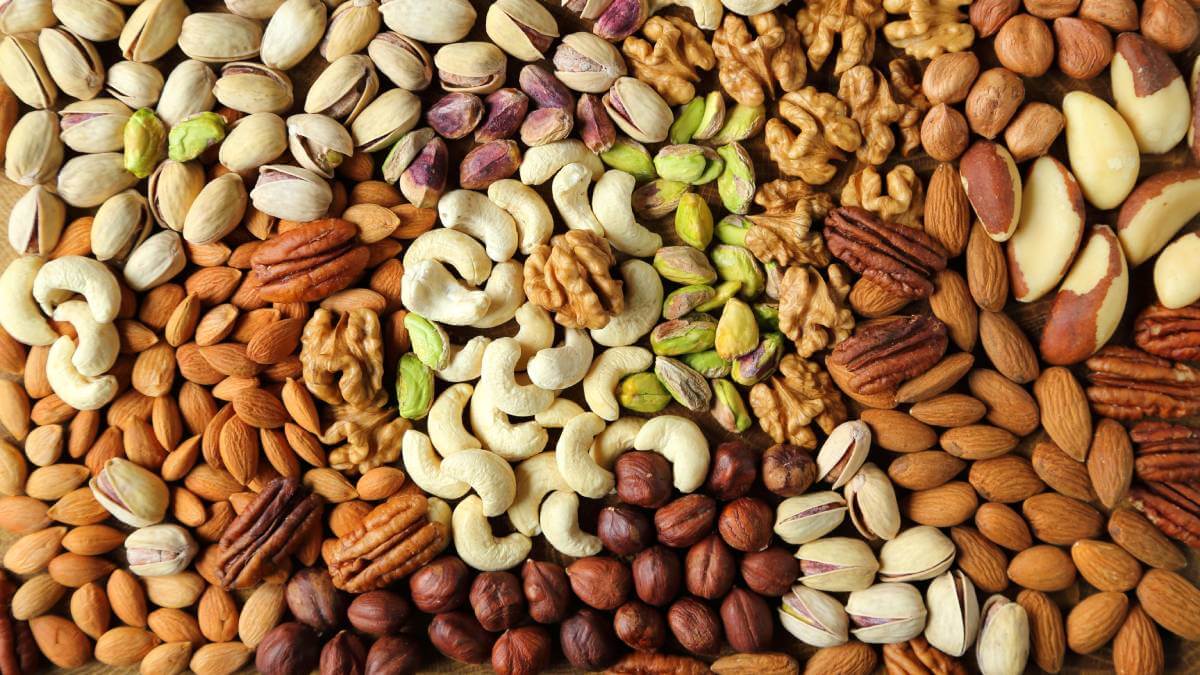Nuts, in their various guises, are often praised for their ability to lower cholesterol levels. But just how true is that, and do some nuts do a better job of it than others? As a nut lover who is particularly partial to cashews, these are important questions.
Fortunately, the good folk at Medical News Today have done a deep dive into the topic, so that you and I don’t have to. They have selected some of the more commonly consumed nuts and checked the scientific literature so we can choose the best nuts without being driven, shall we say, nuts.
In tackling the subject of cholesterol and nuts, it’s necessary to remember that there are broadly two types of cholesterol. Their technical names are low-density lipoproteins (LDL) and high-density lipoproteins (HDL), but all you really need to know is that one type is a ‘good’ cholesterol and one is ‘bad’, and, most importantly, which is which.
Good guys and bad guys
LDLs are the bad guys and HDLs the good guys. When it comes to nuts and lipoproteins, the nuts most highly prized are those that not only lower your LDL level but also raise your HDL level.
Looking at nine varieties of nuts, the authors found that three were superstars in cholesterol control: pistachios, almonds and macadamia nuts.
A 2018 scientific review found that almonds can lower LDL cholesterol while maintaining or even increasing HDL cholesterol, while across nine studies involving pistachios, six indicated that a diet with pistachios both reduced LDL and increased HDL – an ideal outcome.
Macadamia nuts fell into the same category, with a small 2003 study indicating consumption could lower LDL levels by around 5.3 per cent while increasing HDL levels by 7.9 per cent among men with elevated cholesterol levels. This came with a note of caution, though, that this was a single study and a small one.
On the next tier are peanuts, pecans and hazelnuts. Peanuts are rich in chemicals called phytosterols, which may stop the body from absorbing as much cholesterol as they are similar in structure to cholesterol and compete with it in absorption.
Studies suggest that peanuts can lower a person’s total cholesterol and LDL levels, but has little or no impact on HDL levels.
Pecans can lower LDL levels, according to one study, but the authors again emphasised the need for further research. Hazelnuts has been the subject of several studies and indications are that they lower levels of total and LDL cholesterol, but have no effect on their HDL cholesterol.
Which nut?
That leaves walnuts, Brazil nuts, and – my favourite – cashews.
Walnuts may have a claim to a slightly higher ranking, because a review of 26 studies indicated they may lower LDL level, but this effect was more pronounced only when walnuts made up 10 to 25 per cent of a person’s daily energy intake.
Brazil nuts did get a good rap in a 2013 study, which indicated a lowering of LDL and a rise in HDL. However, more recent analyses suggest they offer no significant changes in cholesterol levels.
As for my mates, cashews, it appears that their consumption has no significant effect on total, LDL or HDL cholesterol. That’s somewhat of a disappointment, as I had believed they were helping me out.
All this is not to say that any of these nuts are bad for us. They can all provide nutritional value and help increase our fibre intake, which is good. Nuts are, however, quite high in fat, so intake should be at moderate levels.
In short, enjoy your nuts, whichever ones you prefer, but be careful not to go nuts about them.
Do you struggle with high cholesterol? What have you found helps lower your levels? Why not share your thoughts in the comments section below?
Also read: Eight foods that lower bad cholesterol


OK, so it seems that almonds maybe good for lowering LDL and good to raise HDL … but in what quantities and how often??!
It’s a pity nuts are so expensive
I personally love getting into peanuts, cashews and macadamias (Queensland Nut) however that love has put me into hospital a number of times with diverticulitis which is no joy.
The moral is “eat them but be careful to chew them fully” or suffer the consequences.